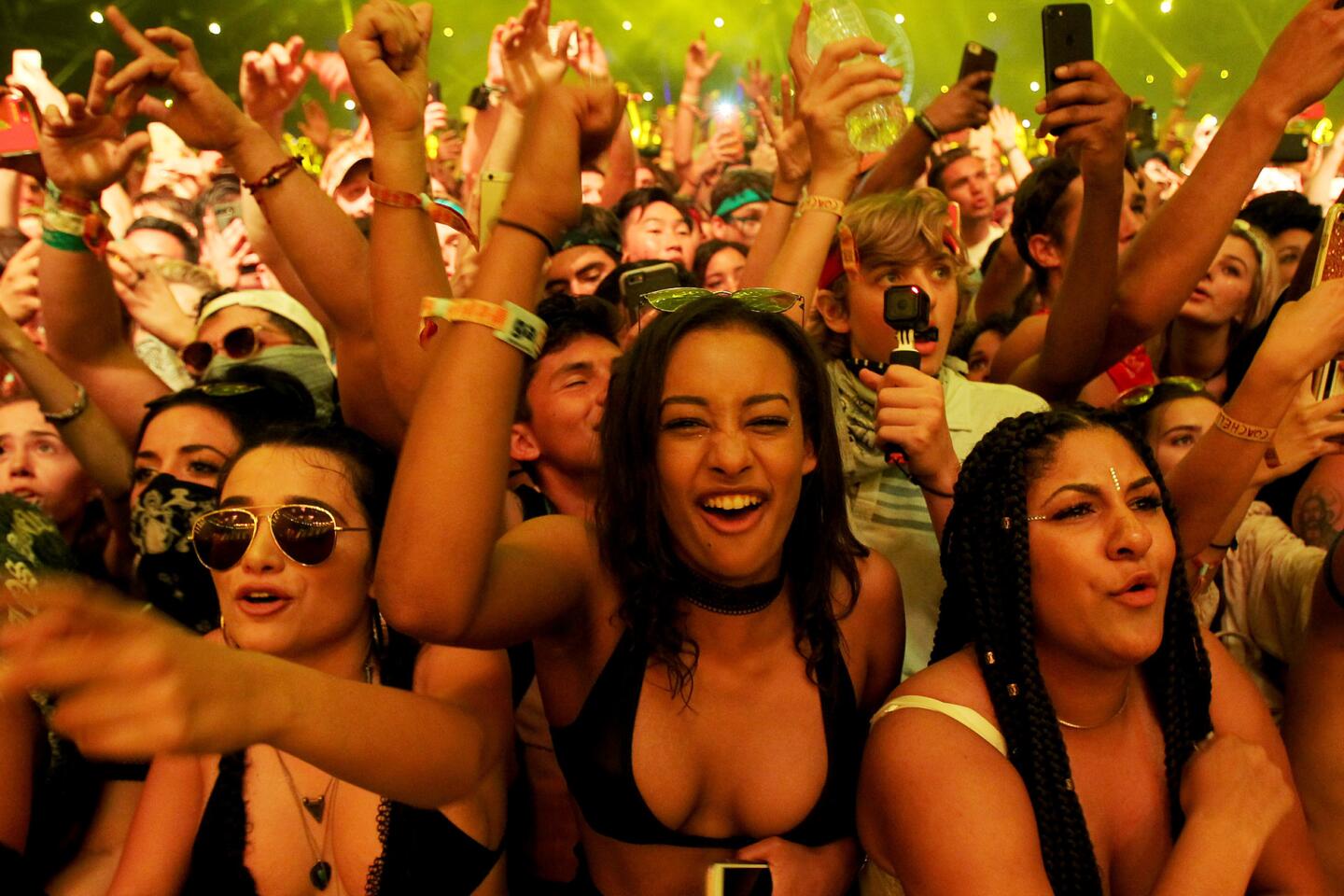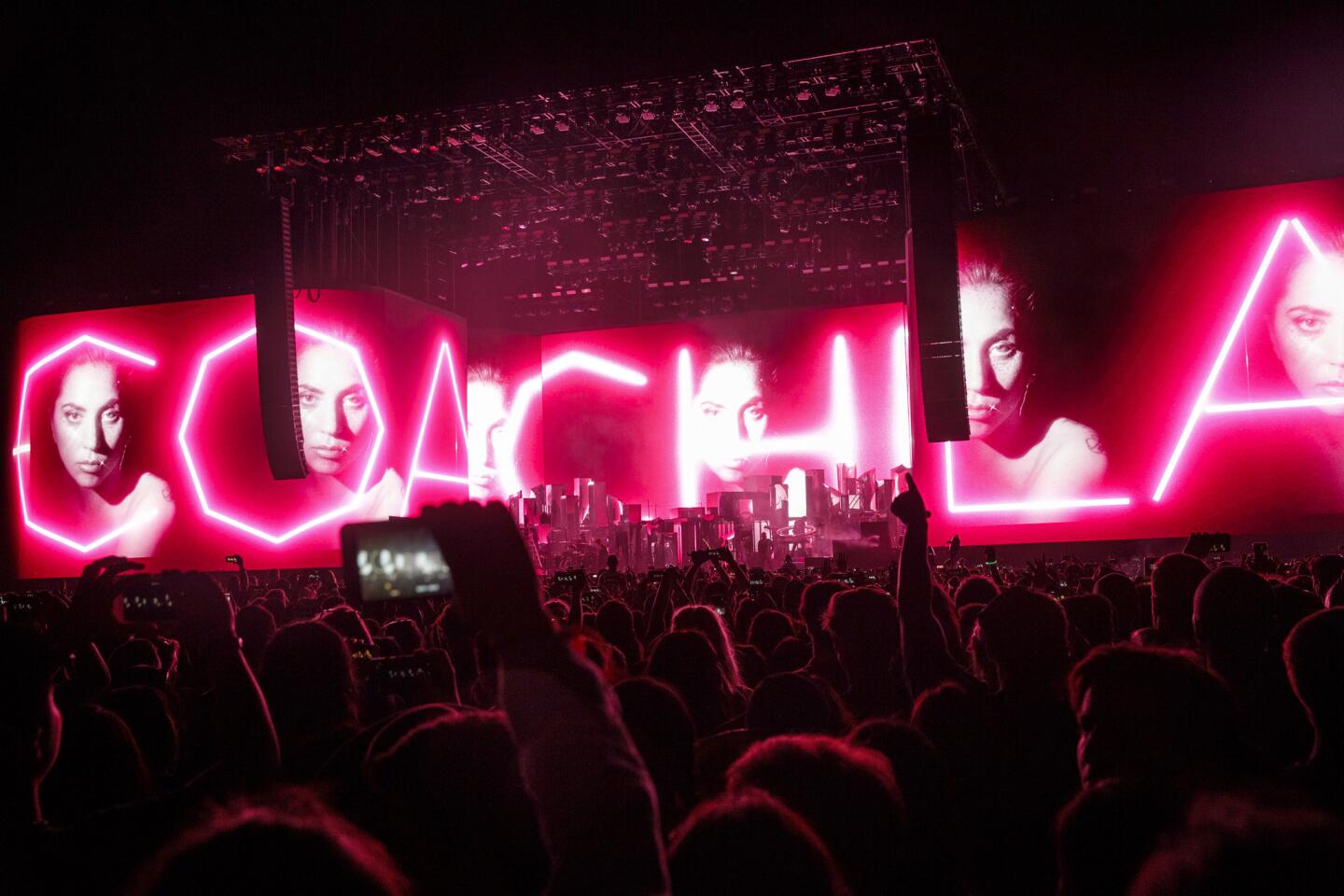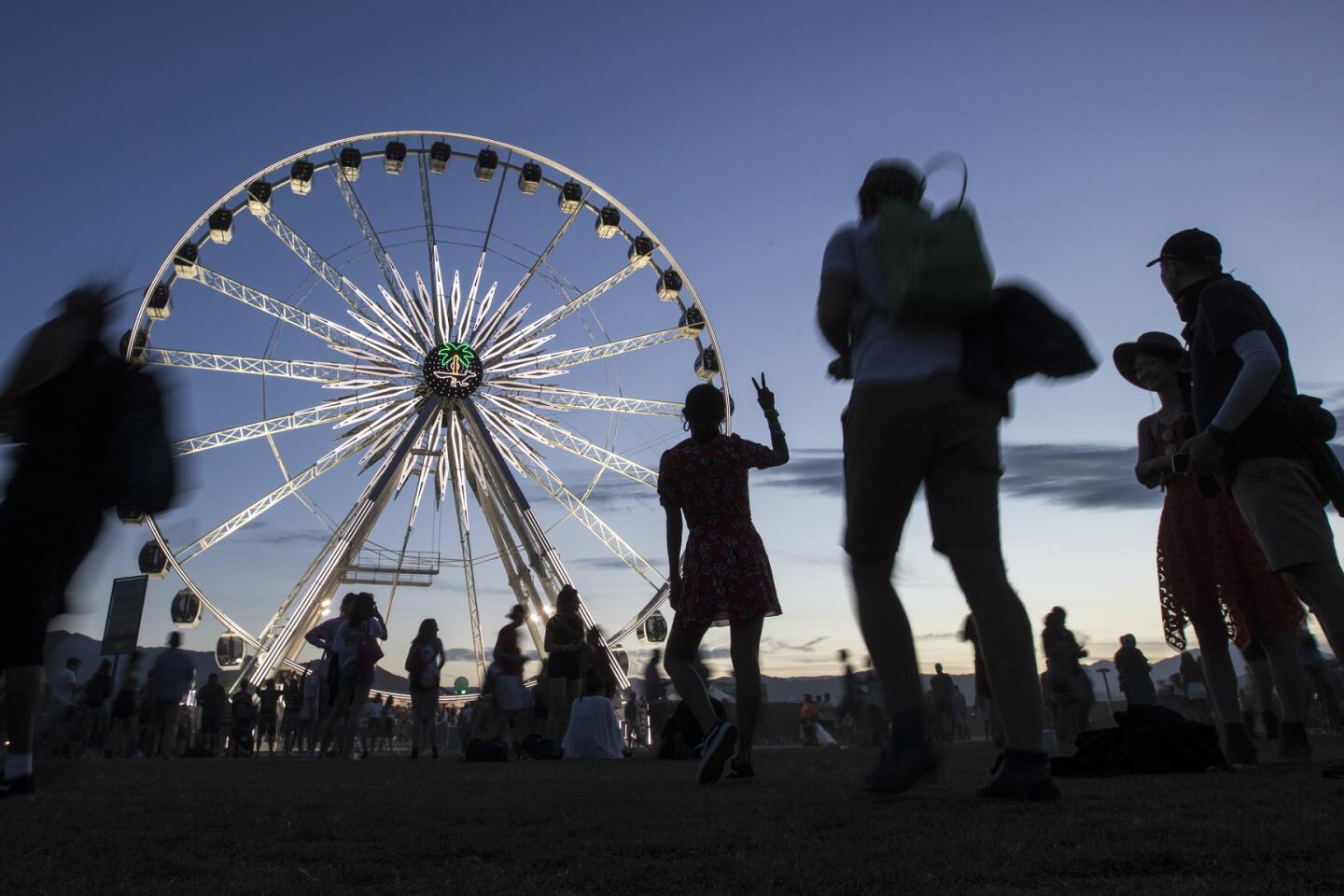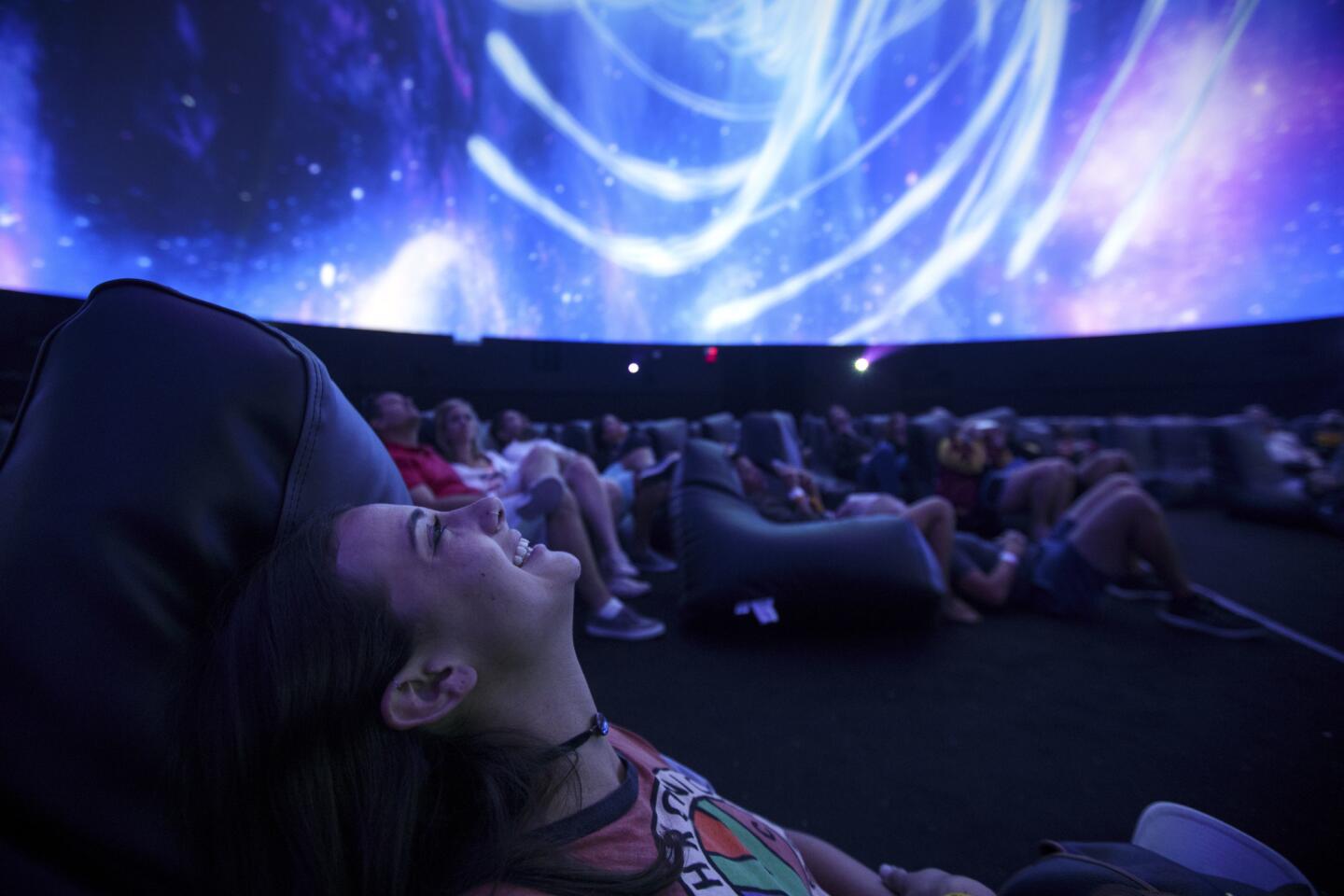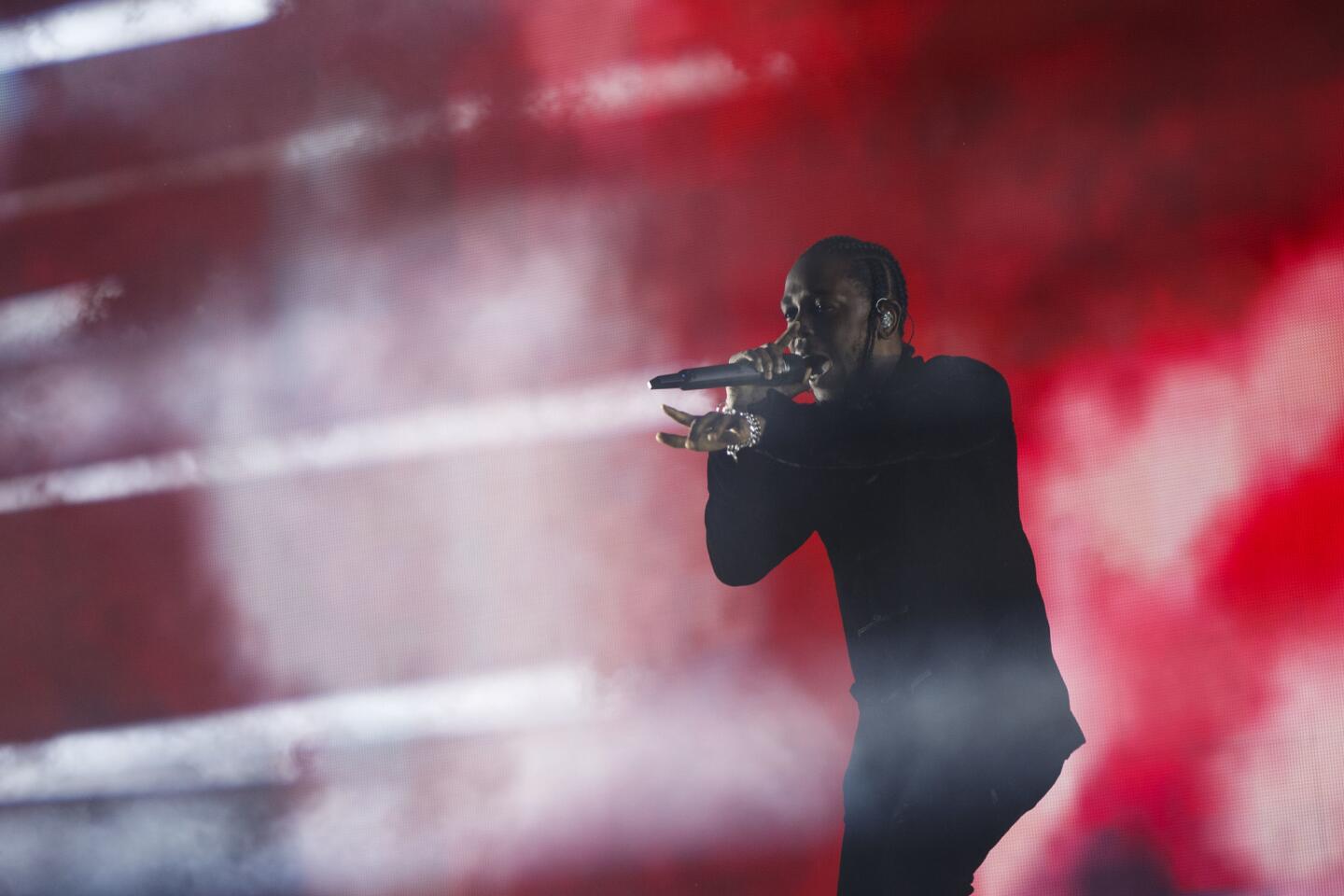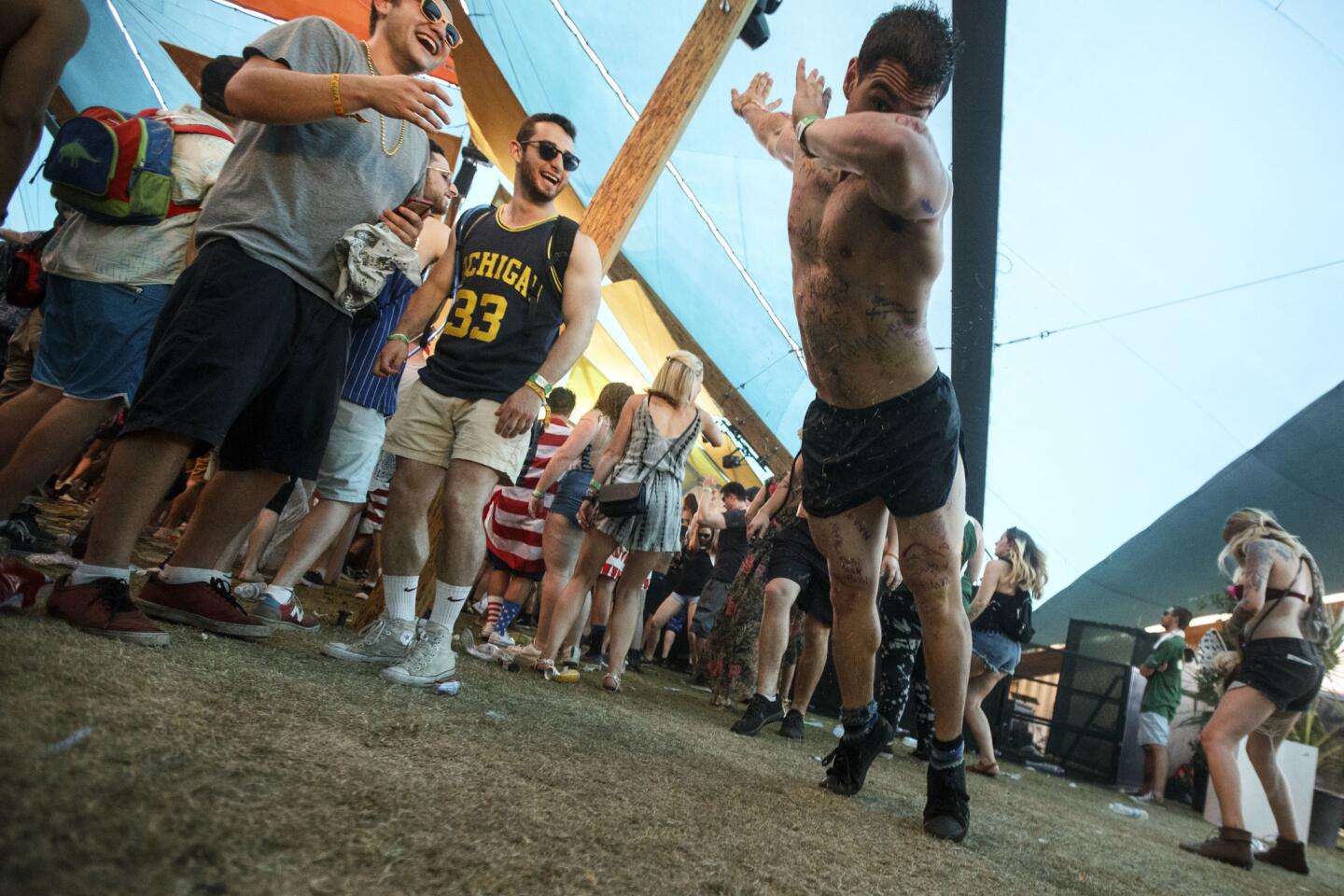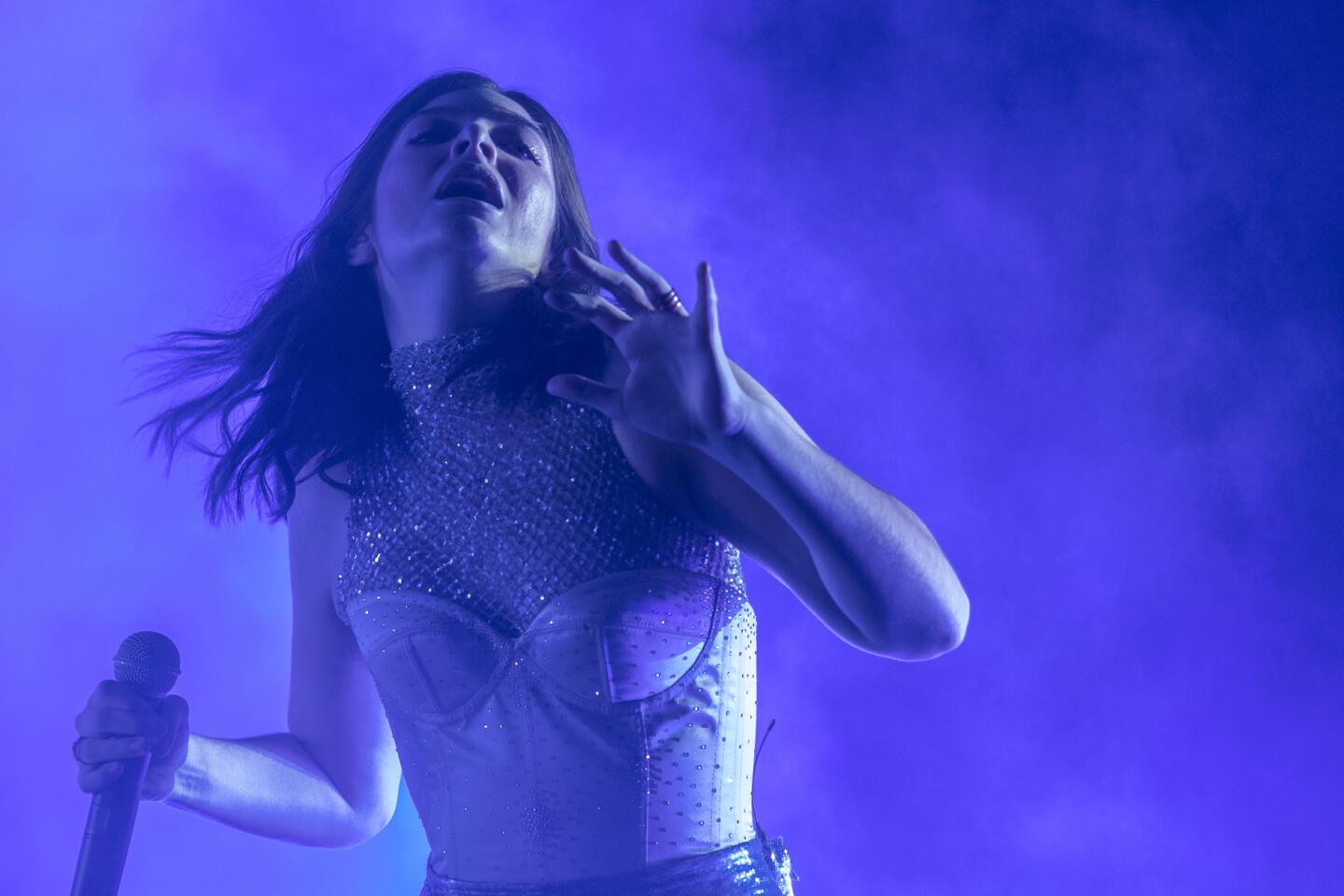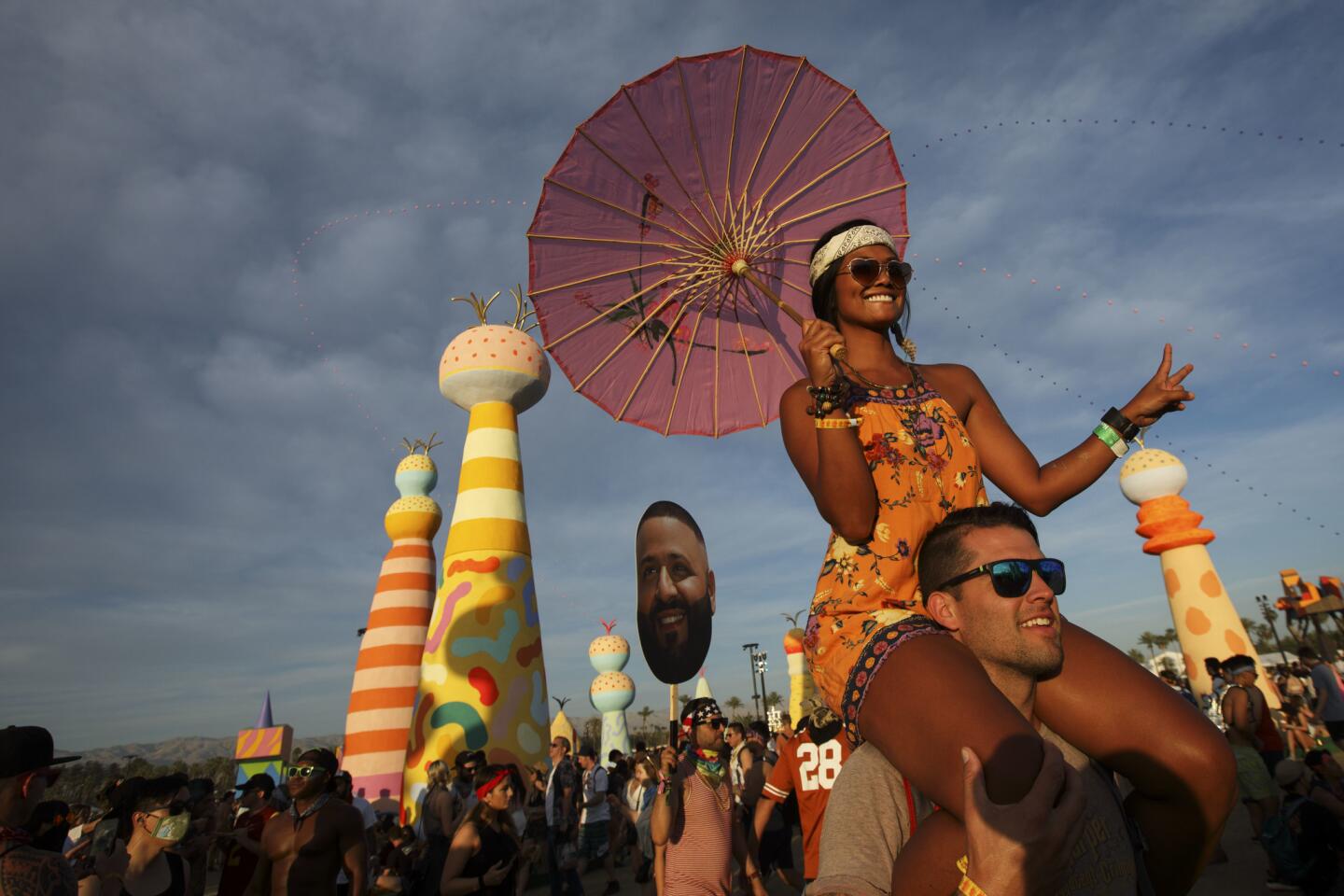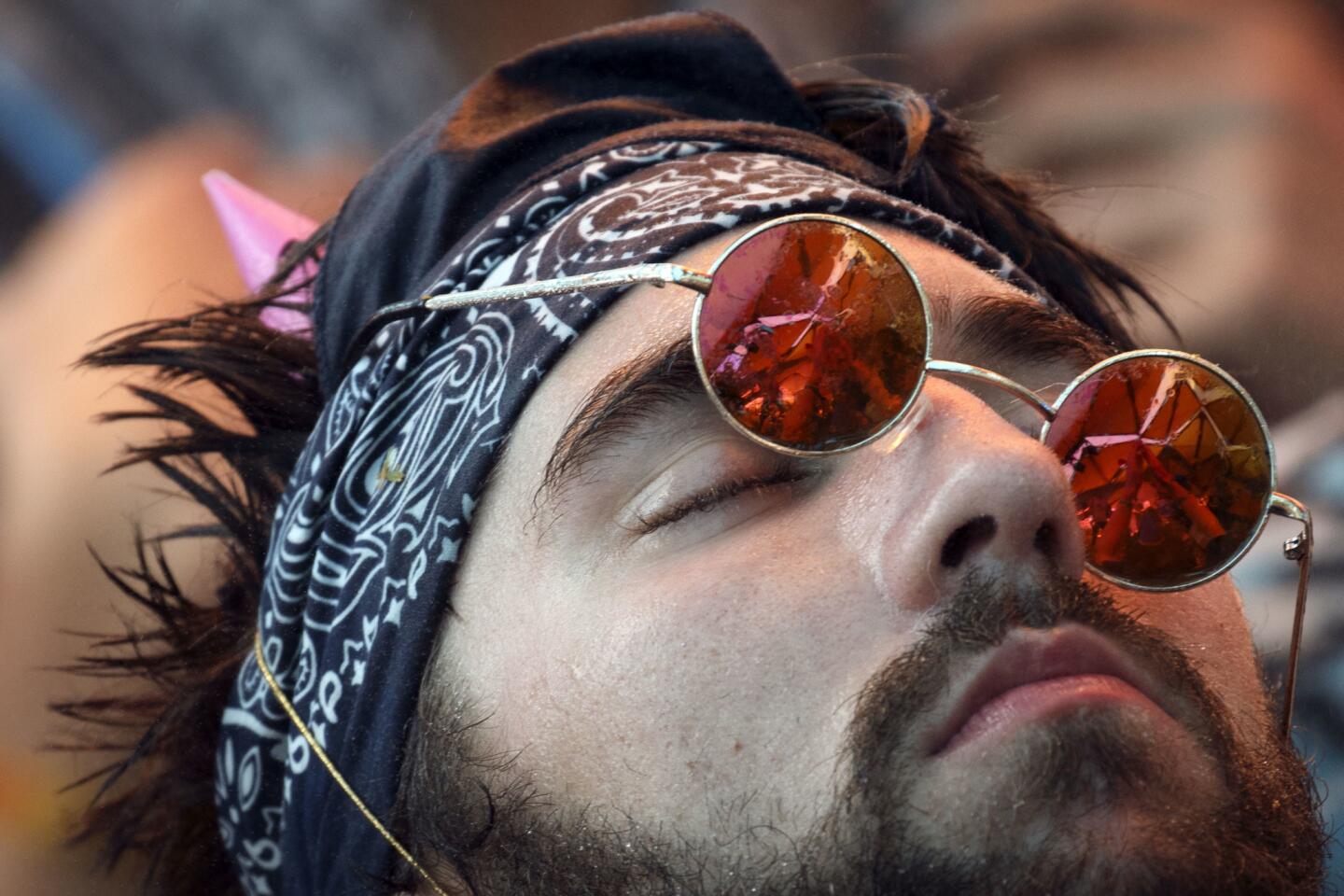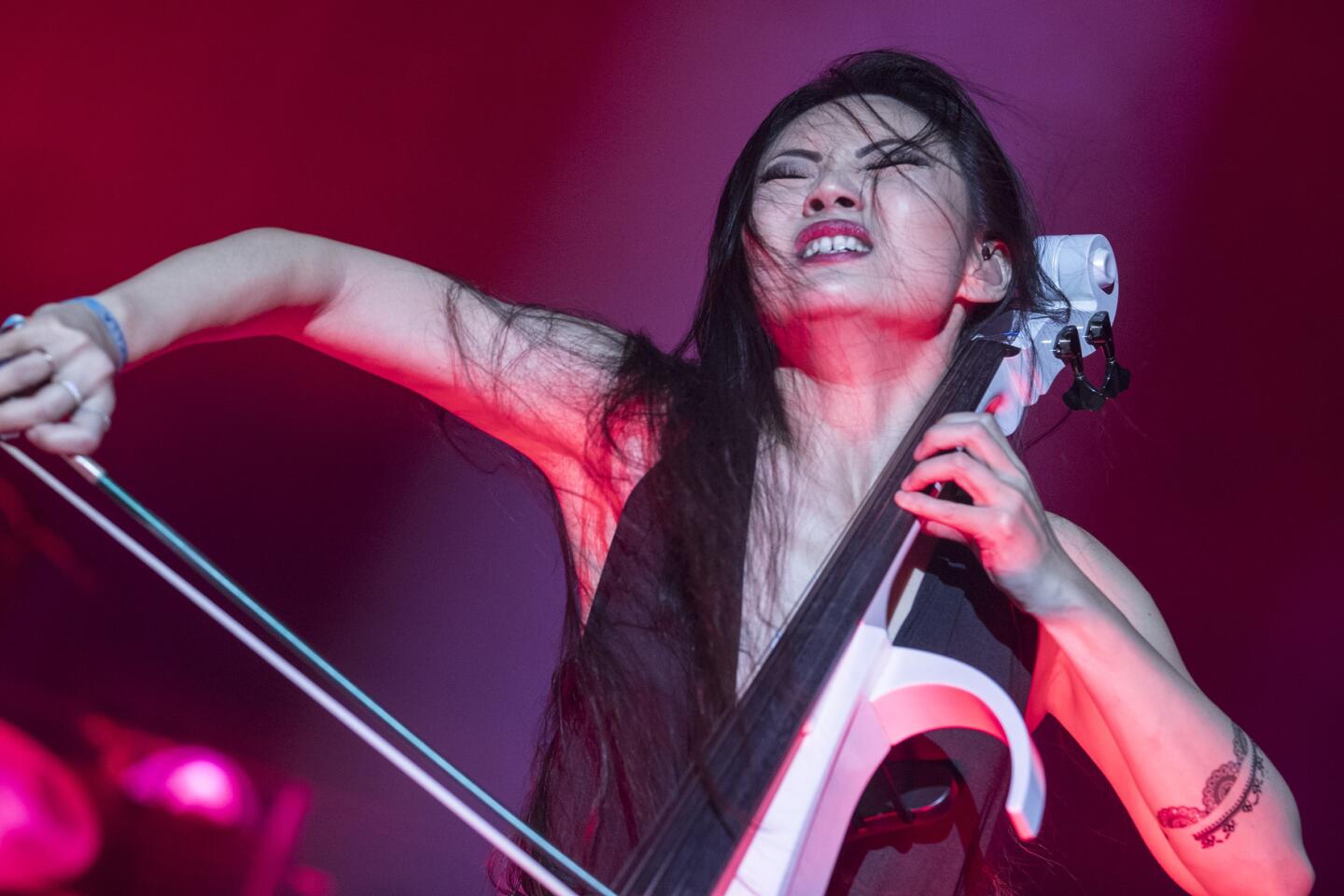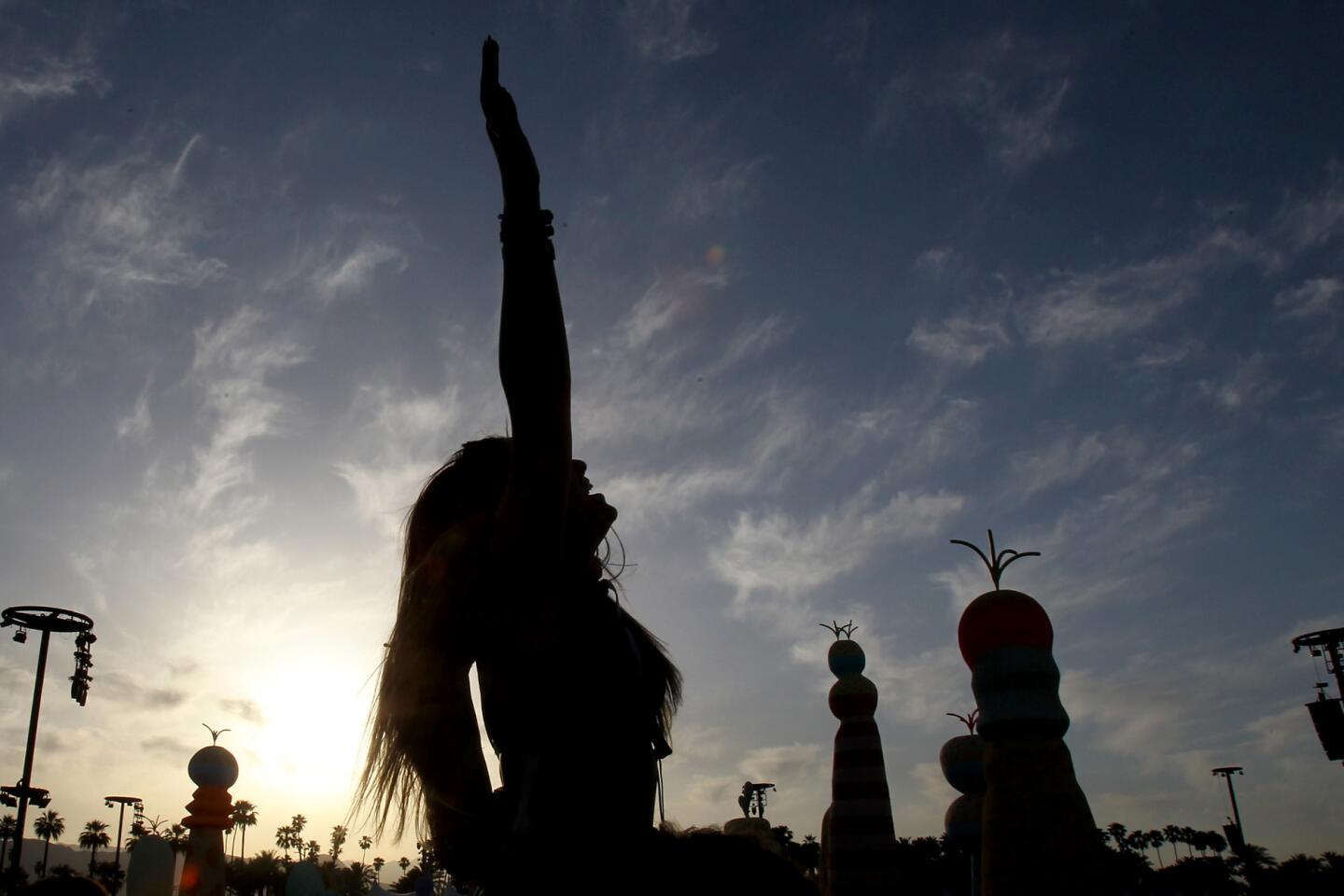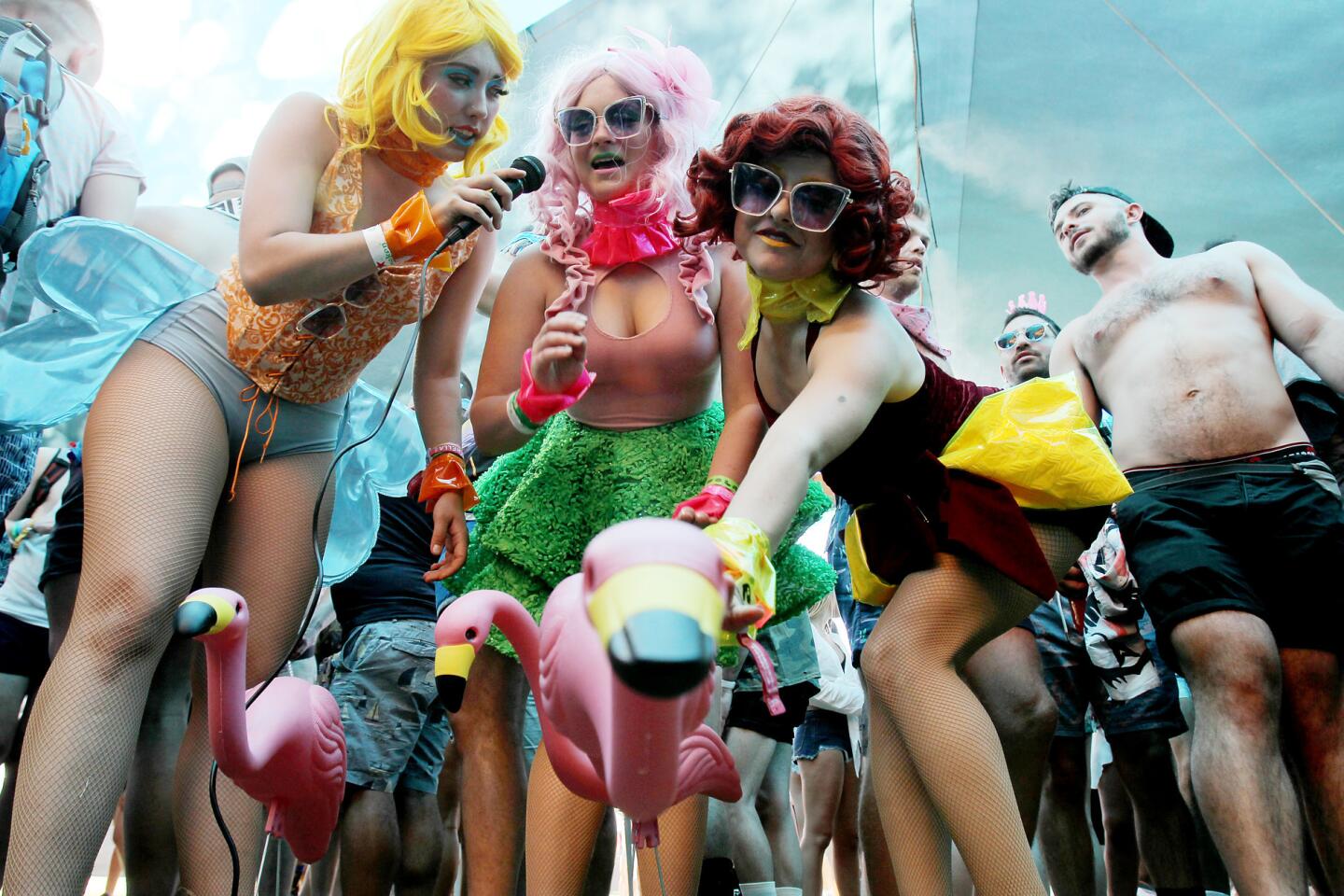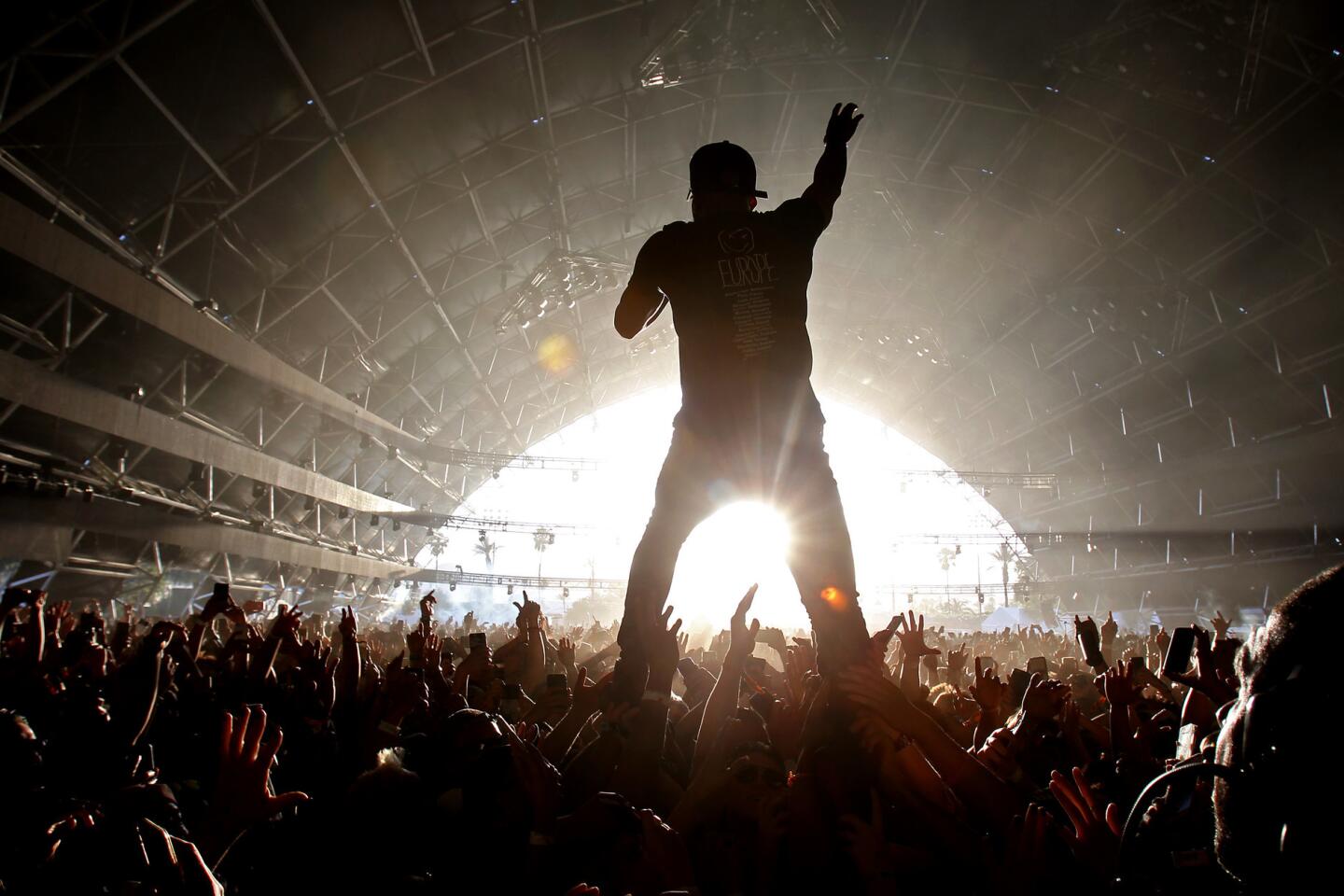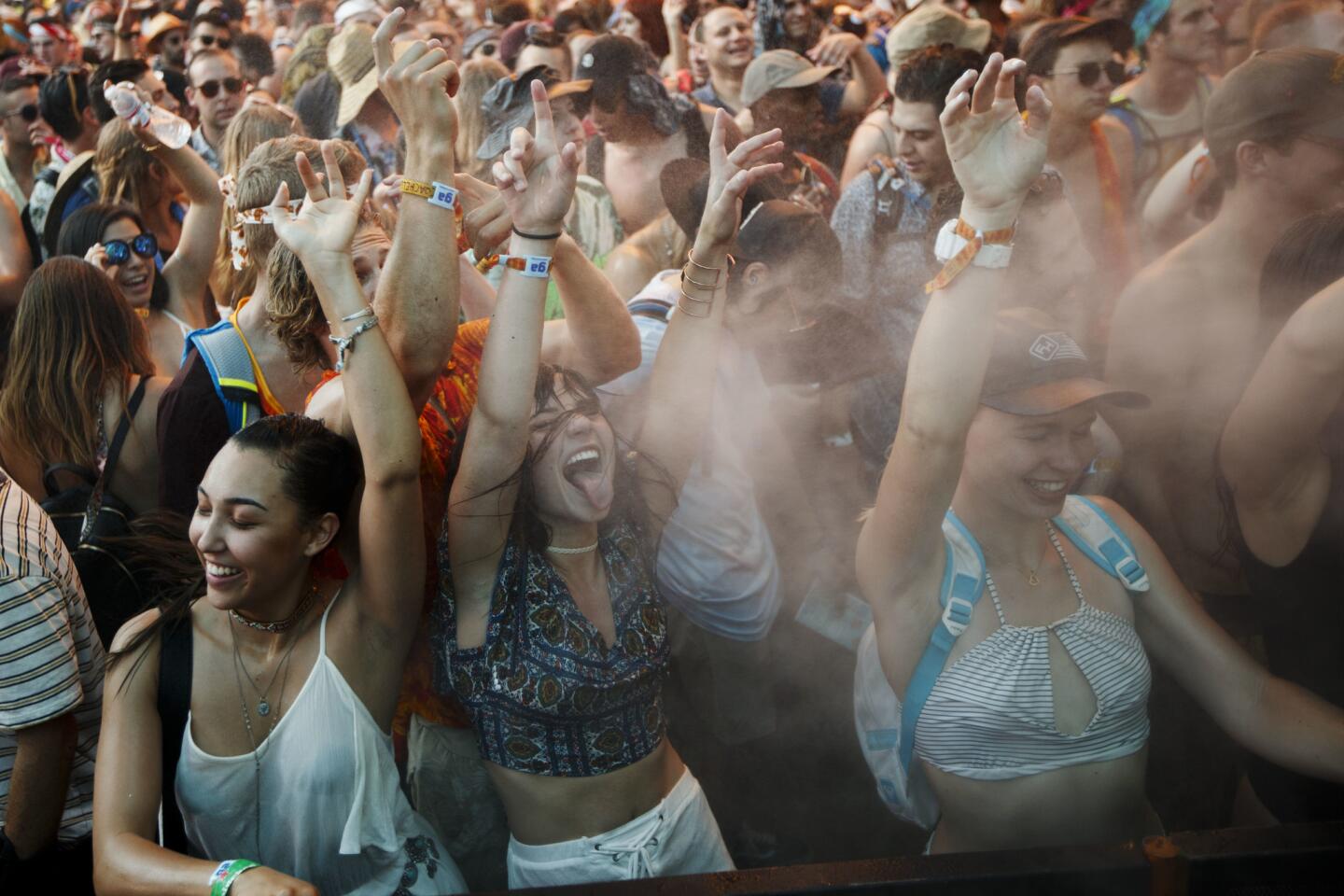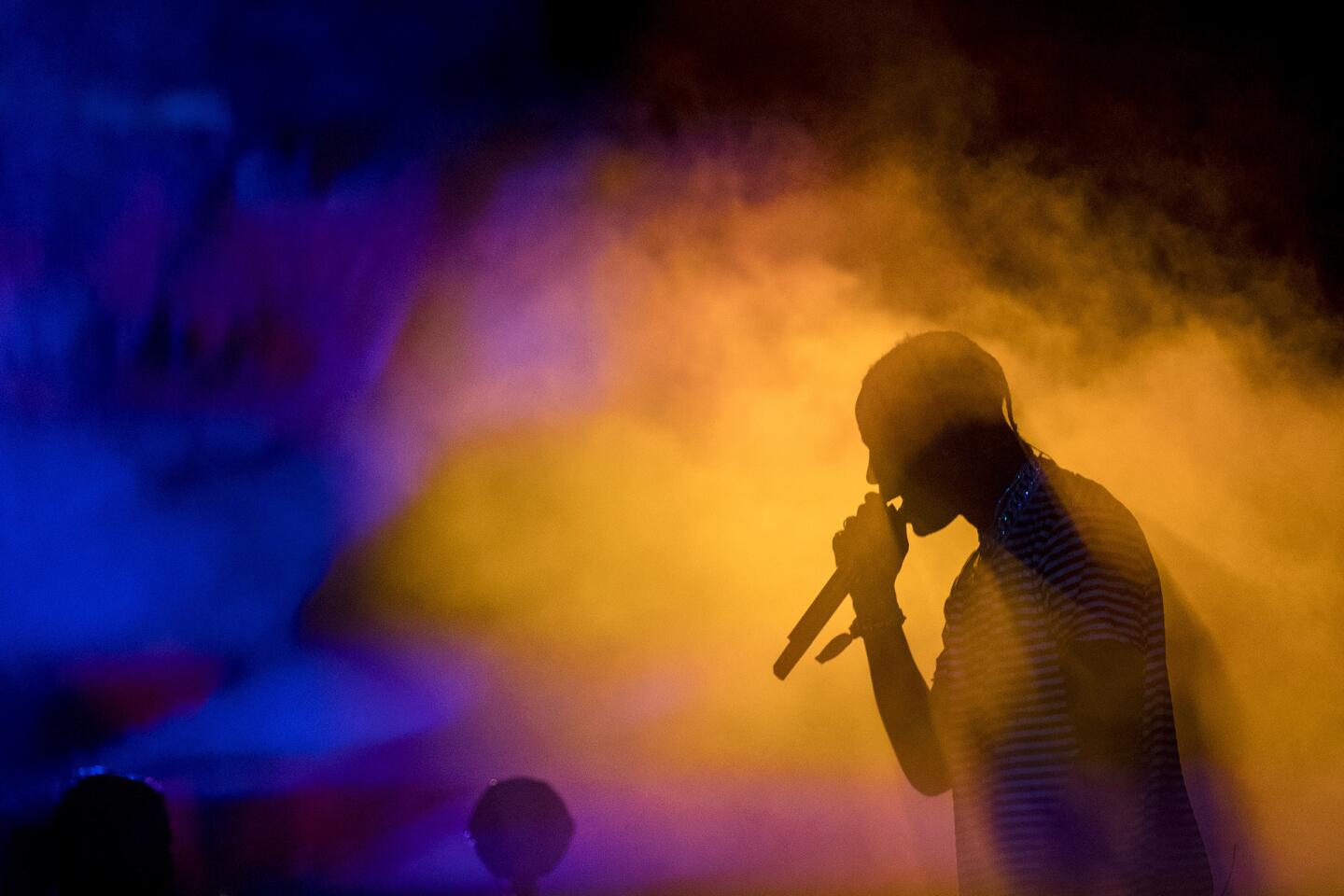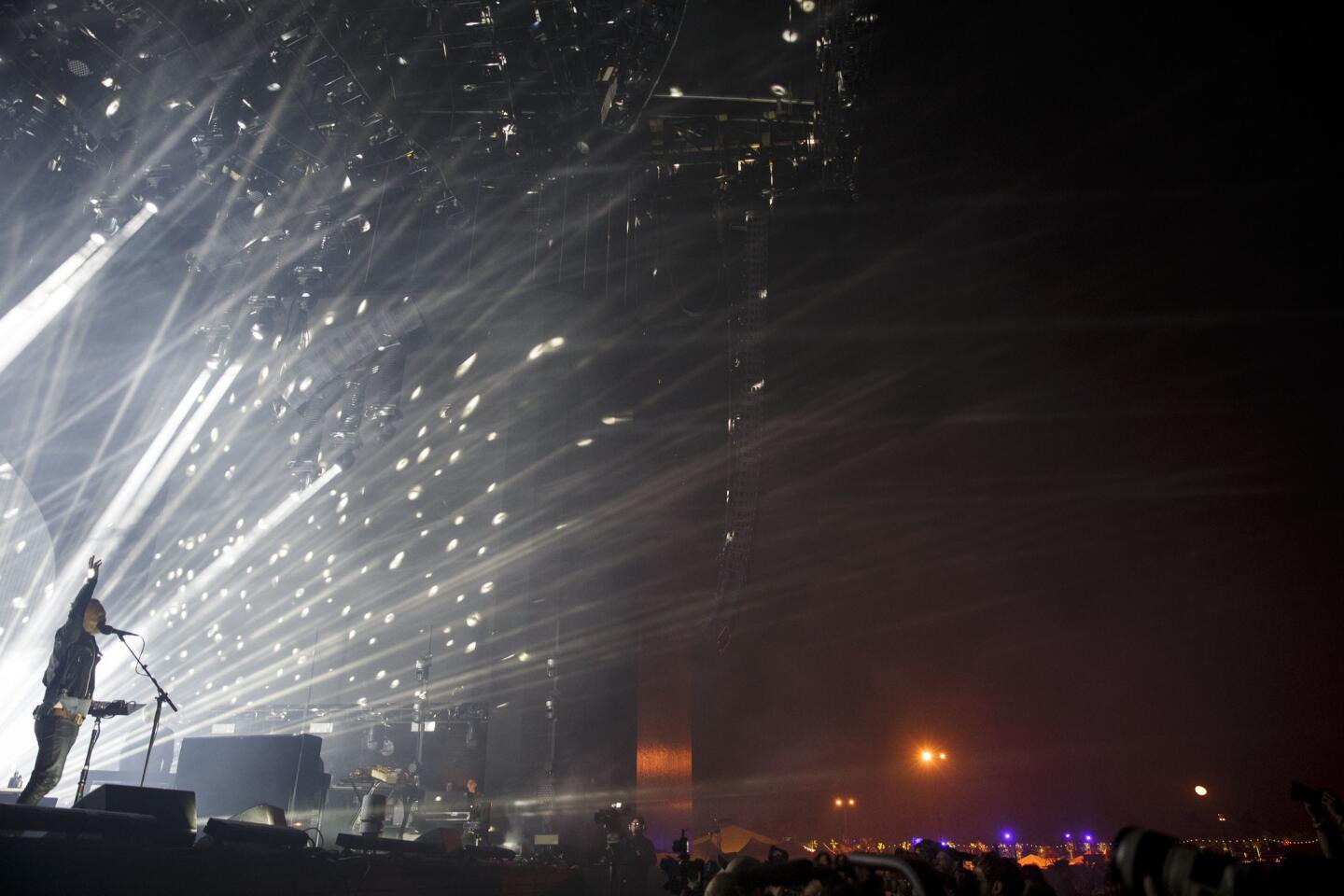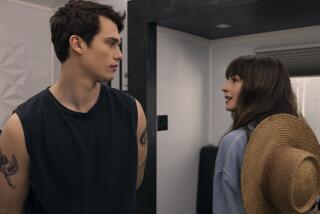Behind its laid-back image, Coachella aggressively protects its trademark
- Share via
What do Whole Foods and Sean “Diddy” Combs have in common? They both recently learned not to mess with the suffix “chella.”
A few weeks before this year’s Coachella Valley Music and Arts Festival in Indio, the Palm Desert Whole Foods announced an upcoming concert and tasting event that it dubbed Wholechella.
Soon after, the store had heard from festival lawyers. “We had to change the name,” said Christy Jeziorski, the Palm Desert location’s marketing manager. They went with the Pre-Fest Beer Garden.
Not long after, rapper and entrepreneur Sean “Diddy” Combs was forced to change the name of his upcoming Bermuda Dunes bash. Originally dubbed “Combschella,” it will now be known as Combs Fest.
Like rap festival Hoodchella and movie festival Filmchella before them, Wholechella and Combschella found themselves the focus of attorneys who handle the powerful and particular trademark enforcement of festival promoter Goldenvoice, which owns the rights to the use of the word Coachella.
You could call them Lawyachella, but then you’d hear from them yourself.
The legal actions are in stark contrast to the laid-back marketing messages Coachella conveys. “The live-music experience — it’s tribal. It’s communal,” DJ Jason Bentley says in one Coachella promo, painting the festival as an oasis of freedom that supports carefree, youthful rebellion.

However communal it may seem, Coachella has increasingly protected its brand with the firepower of litigious billion-dollar businesses such as Disney and the “Harry Potter” franchise.
Trademarks aren’t the only properties Goldenvoice is guarding. It’s also protecting its turf. Earlier this month an Oregon concert promoter sued the company’s owner, AEG, and its subsidiaries over Coachella’s efforts to enforce a so-called “radius clause.”
The clause, part of an artist’s contract for Coachella participation, prohibits acts from playing music festivals or themed events inside a five-state radius around California from December to May. As a result, a Portland, Ore., event called the “Soul’d Out Music Festival” lost out on a few crucial bookings, including R&B star SZA.
Portland is more than 1,000 miles from Indio.
Frustrated with the restrictions, Soul’d Out organizers Nicholas Harris and Haytham Abdulhadi hired lawyers who allege that Goldenvoice has violated antitrust laws by, according to the suit, “unreasonably restricting price and cost of competition among live concert venues.”
In an email, Harris said that Soul’d Out was directly told by booking agents that their artists “were not able or willing to perform at our event this year because of contractual restrictions imposed by Coachella.”
Adding that his company is “passionate about bringing great concert experiences to the public and feel very strongly about the future trajectory of the industry,” Harris said Soul’d Out filed suit against AEG “in the interest of the music-consuming public and the independent promoters who are struggling against the rapid consolidation and corporatization of our industry.”
In addition to suits brought against Hoodchella and Filmchella regarding the use of “chella,” Goldenvoice has, in the past two years, filed claims against at least four other outlets that attempted to use either the suffix or the full name including energy company Phillips 66 and clothing retailer Urban Outfitters.
The moves are part of Goldenvoice’s avowed efforts to “extensively police unauthorized use of the Coachella Marks,” as its attorneys wrote in one suit. The company, the suit against Hoodchella read, has sent what it called “countless cease and desist letters, and made countless telephone calls” to combat misuse or unauthorized use of its trademarks. (Representatives for Goldenvoice declined to comment.)
A similar communication was made to Whole Foods, according to Jeziorski. Facing possible litigation from a well-financed adversary, Whole Foods’ Palm Desert location opted to stand down.
But how can a company own the trademark on a place? Unlike distinctive trademarks with invented names Microsoft or Google, Coachella is a point on a map. Specifically, a township in the Coachella Valley, which has been the region’s name since long before Goldenvoice started a music festival in Indio.
It all has to do with the festival’s success, says intellectual property attorney Allen Grodsky. When an event or brand embeds itself into the fabric of culture as Coachella has, it accrues what in intellectual property terms is called “secondary meaning.”
“When you say the word ‘Coachella’ to people, they don’t really think of that area of the country,” Grodsky explained. “They think of the festival, so it’s acquired secondary meaning. As a result, you can get a trademark in it.”
The same is true of other distinctively named festivals such as Lollapalooza. When the alcohol brand Four Loko sought to introduce a drink called Lokopalooza, Lollapalooza successfully prevented it. Festivals that attach “palooza” to their names may also hear from Lollapalooza’s lawyers.
As Goldenvoice attorneys argued in one complaint, Coachella’s trademarks “are highly distinctive, famous, and serve uniquely to identify [Goldenvoice’s] products and services.” Through the festival’s success and ubiquity, it continues, “these marks have become assets of incalculable value as symbols of [Goldenvoice’s] products and services.”
In its 2017 suit against Robert Simms and the Palm Springs film festival he dubbed Filmchella, attorneys for Goldenvoice stressed that the company had no objection to Simms and company holding a festival of their own, regardless, as the suit reads, “of whether it features movies, films, music, or otherwise.”
Goldenvoice, it added, appreciated the enthusiasm shown by the organizers. It simply wanted them “to use a distinctive name of their own that does not infringe or trade on the goodwill of” the famous Coachella marks.
Such piggy-backers aren’t the only ones who have faced legal action. In early 2016, Goldenvoice attorneys alleged that Phillips 66 was “engaged in an extensive advertising campaign using the Coachella marks to promote Phillips 66 Co.’s gas stations.”
Its mistake: holding a sweepstakes to give away Coachella passes despite a prohibition on such contests in the festival’s terms of service. Included with each pass, the terms bar wristbands from being “sold, transferred, or used for any form of commercial or trade purposes,” including sweepstakes.
In 2016, Goldenvoice sued Urban Outfitters and its brand Free People, alleging that it sold clothes specifically marketed to would-be festival attendees, including a “Bella Coachella” line of clothes and a “Coachella Valley Tunic.”

Given that Goldenvoice has in years past developed sponsorship relationships with clothiers including H&M, the Free People collection created an impression that it was approved by Goldenvoice, which it was not.
“You can’t confuse people into believing you’re affiliated with that trademark, Grodsky said.
There are limits however, he added. If a mechanic wanted to open Coachella Auto Repair in the area, “it would be a terrible lawsuit for Coachella the festival, because nobody is going to confuse those two things.”
At the Palm Springs General Store, which specializes in souvenirs including T-shirts, co-owner Amy Lockwood doesn’t sell clothes with Coachella Valley written on it.
“The only two things we sell with ‘Coachella Valley’ on it are shot glasses and magnets,” she said, “and they haven’t come after us for those.”
For tips, records, snapshots and stories on Los Angeles music culture, follow Randall Roberts on Twitter and Instagram: @liledit. Email: [email protected].
More to Read
The biggest entertainment stories
Get our big stories about Hollywood, film, television, music, arts, culture and more right in your inbox as soon as they publish.
You may occasionally receive promotional content from the Los Angeles Times.
